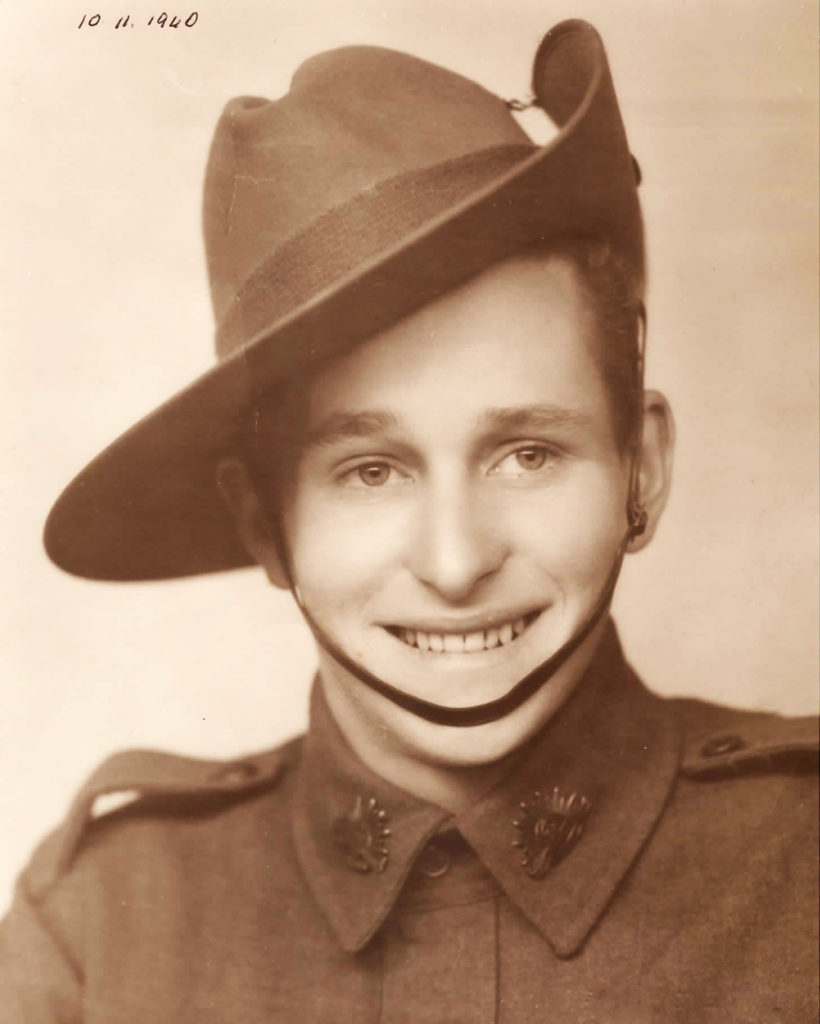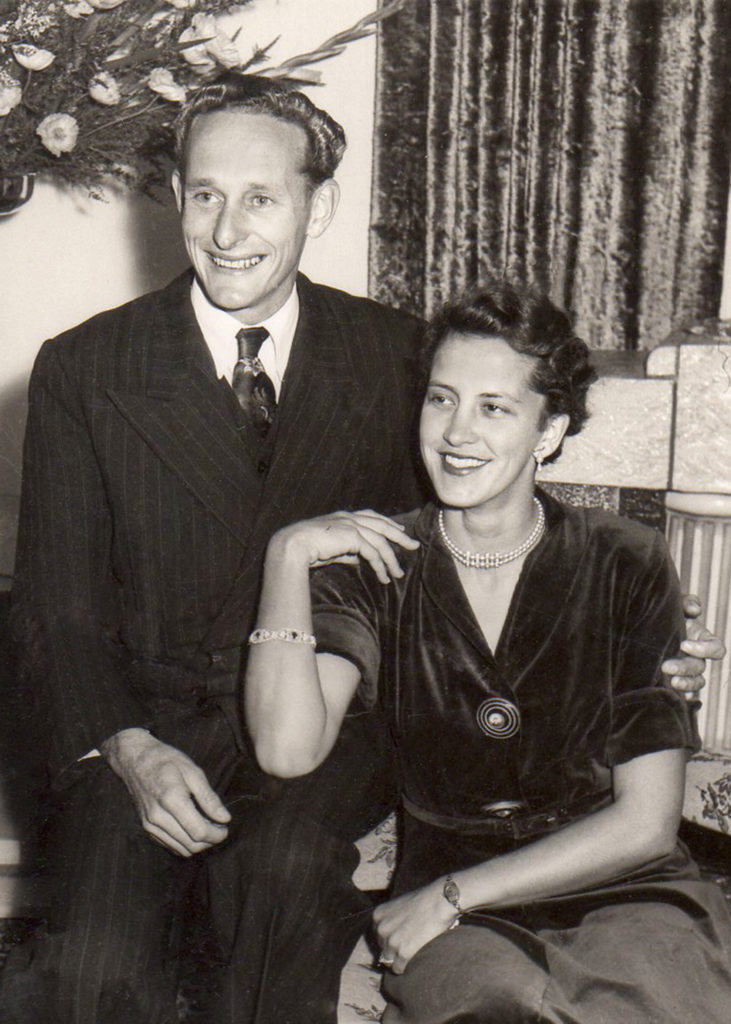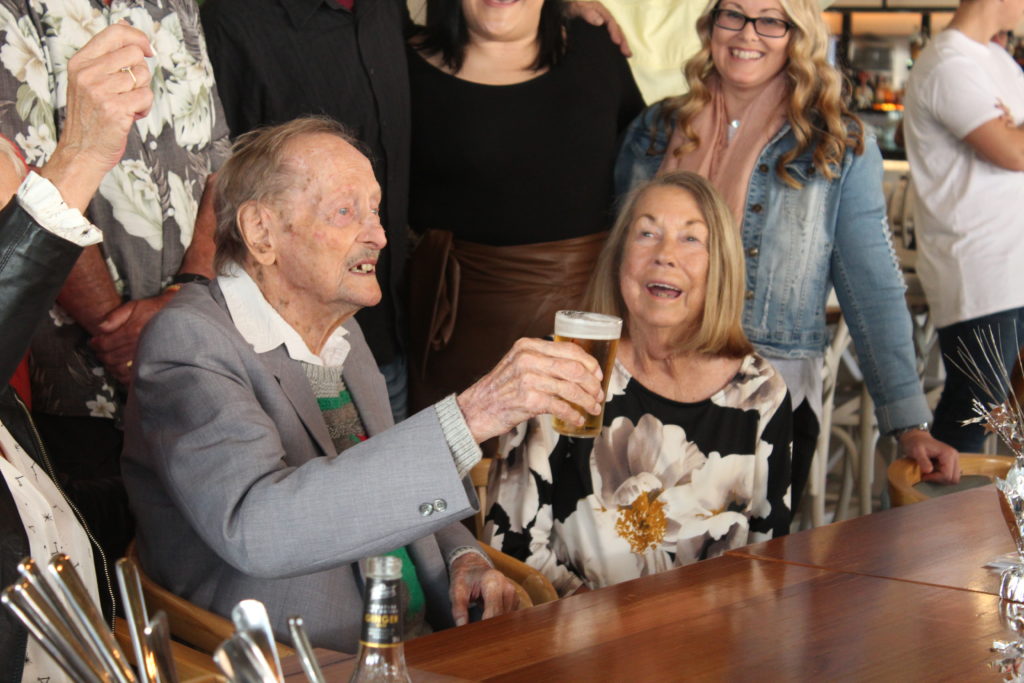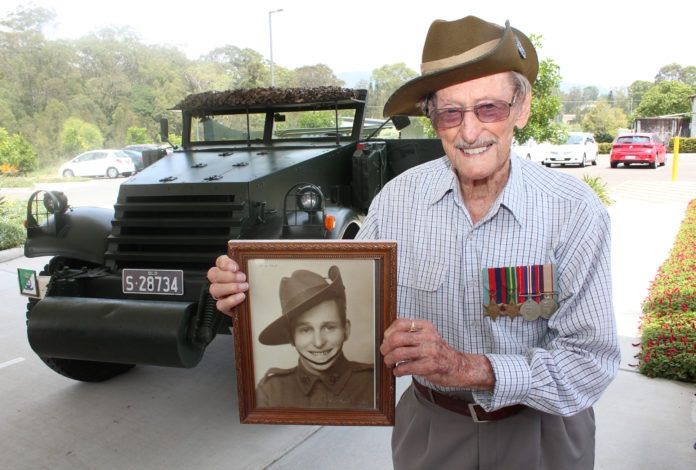A former prisoner of war from the Gold Coast has celebrated his 100th birthday.

Gordon Jamieson, who lives at the Carinity Cedarbrook aged care community at Mudgeeraba, is one of the last surviving Queenslanders forced to work on the infamous Thai-Burma railway during World War II.
He was born on 14 June, 1921 at Amiens in Queensland. Soon after, Gordon’s family moved to nearby Stanthorpe and then to Brisbane.
When World War II broke out, Gordon lied about his age – the minimum age for enlistment was 20 – and joined the army “to go on an adventure”. He fought in the Malayan campaign and following Japan’s capture of Singapore in 1942, was a prisoner of war.
“He was captured and spent almost four years as a prisoner of war with his parents not knowing if he was dead or alive for many of those years,” Gordon’s daughter, Paula Neill explains.
Gordon was held in Changi prison and was forced to work up to 18 hours a day on the construction of the infamous Thai-Burma Railway, also known as the Death Railway due to the horrific conditions faced by the prisoners. Around 2,800 Australians died building the 415km rail line.

“He was one of the lucky ones that survived which he put down to the comradeship of his fellow prisoners that he kept in touch with all those years after the war,” Paula says.
Upon his return to Queensland, Gordon bought a café and later worked in a chicken abattoir and also owned welding and tractor businesses.
Gordon’s sister introduced him to his future wife, Shirley. They had two children together and adopted a third child, a South Sea Islander girl.
The Jamiesons were members of the anti-conscription movement during the Vietnam War. Gordon travelled to Thailand and Japan to take part in commemorative ceremonies honouring prisoners of war, and lobbied the Australian and Japanese Governments for reparations for prisoners of war.
“My wartime experiences convinced me of the futility of war. The memories of my war are not those of victorious battles or ignominious defeat, but of the human spirit of our Australian soldiers,” Gordon wrote.
Gordon survived another battle in the 1970s.
“He ended up in intensive care for three months due to an ongoing problem he got during the war and eventually manifested itself. He nearly died but being the fighter that he is he pulled through,” Paula says.

Around 50 of Gordon’s family members, some from as far away as Townsville, attended his recent 100th birthday party at Robina. Also in attendance were some of his five grandchildren and 10 great-grandchildren.


